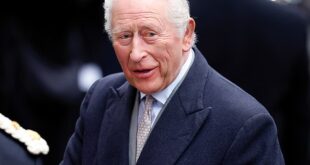Tough times in stock markets tend to spark a flight to quality. But bonds, once the first stop on this dash, have been left reeling by spiralling inflation and interest rates.
So the search is on for alternative safe havens, with some investors resolved to be inventive and have fun. And as we celebrate the Queen’s Platinum Jubilee, could companies endorsed by the monarch be worth considering?
You may not be able to invest in all of the winners of the Queen’s Awards for Enterprise and companies granted warrants by the Queen and the Prince of Wales. But the quoted businesses in this coterie of garlanded firms must deliver to the highest of standards, whether they are in cereals like Kellogg’s (her Majesty is said to have Special K for breakfast), or ‘linen drapery and soft furnishings’ like Dorma, a division of Dunelm.
Coca-Cola is the ‘supplier of soft drinks’ by appointment to Her Majesty. Two other warrant holders are Diageo, maker of Gordon’s and Tanqueray gins, and Dubonnet, which was once the Queen Mother’s favourite tipple and is a part of the Pernod Ricard empire. Brokers believe that the French company’s shares are set to sparkle again.
Assessing the viability of an investment based on its House of Windsor connections may seem a frothy approach, but opting for quality is tried and tested.
Guy Ellison, head of UK equities at Investec Wealth & Investment, says: ‘The adage that ‘form is temporary but class is permanent’ is applied to sports people, but it is equally relevant when selecting investments.
‘In principle, investing is relatively straightforward. We should identify the best-quality businesses, buy them and then do nothing. In practice, the reality is more challenging.
‘There are times when long-term quality companies may be out of form. However, we will not be turning our backs on such class businesses. They embody many of the attributes recognised by the Queen’s Awards for Enterprise, including innovation, sustainable development and promoting opportunity.’
When deciding if warrant holders are a quality buy, it’s important to note that impeccable workmanship and stellar returns are not automatically linked.
The Aston Martin DB11 (prices start at £147,900) is expertly crafted. But shares in Aston Martin Lagonda, ‘motor manufacturer and repairer by appointment to Prince Charles’, have halved since flotation in 2018.
The John Deere 6R 185 tractor is scarcely a sporty ride, but shares in this US-owned agricultural equipment firm are up 2 per cent this year, despite supply chain issues. Morgan Stanley rates the company a ‘defensive buy’.
Volkswagen and its two subsidiaries, Audi UK and Bentley, are also warrant holders. Herbert Diess, Volkswagen’s boss, says that, by 2025, it will overtake Tesla to become the electrical vehicles global No 1.
Boots is being sold by its US parent Walgreens Boots Alliance. Hopes of a disposal windfall are slim, however. Boots, valued at £9billion in 2014, may fetch just £5- 6billion, in part because its customers face a cost-of-living squeeze.
The affluent clientele of two luxury sector warrant holders – Burberry and Mappin & Webb, the jeweller – are likely to be less affected. Shares in Burberry, one of the largest holdings at the Lindsell Train UK Equity fund, managed by Nick Train, should revive when lockdowns ease in China.
Meanwhile, Mappin & Webb is a division of Watches of Switzerland, the UK retailer benefiting from demand for expensive baubles, and for timepieces like Patek Philippe and Rolex.
These watches are seen as an investment, thanks to Chrono24 and similar resale sites. The resale market is also boosting Richemont, owner of JaegerLeCoultre and Cartier, and ‘jeweller and goldsmith by appointment to Prince Charles’. The prince sports a Jaeger-LeCoultre Reverso watch (prices range from £3,750 to £22,700).
This week toasts will be raised to the Queen’s health in Krug, Moet & Chandon and Veuve Clicquot champagne, all belonging to LVMH. This will please those with money in Fundsmith, which has a stake in this luxury titan. As one such investor, I like this fund’s focus on companies with pricing power, an essential at present.
There is doubt as to whether Unilever, another of Fundsmith’s warrant holder investments, can raise its prices. But other consumer products warrant holders such as Nestle, Procter & Gamble, Reckitt, Cadbury and Schweppes seem to be having more success.
Cadbury and Schweppes are owned by the US multinational Mondelez, one of the major stakes at the Finsbury Growth & Income Trust, another Train fund, to which he has recently committed more of his own money.
Train contends that ‘owning shares in solid companies is a good strategy to see you through to the better days to come’. I think that we can all drink to that.
Some links in this article may be affiliate links. If you click on them we may earn a small commission. That helps us fund This Is Money, and keep it free to use. We do not write articles to promote products. We do not allow any commercial relationship to affect our editorial independence.
Source link



